
Tech-Art-Theory
Improvisational Methods for HCI Learning and TeachingKang & Jackson, 2021
Welcome! This is the online gallery space where you can find some curated visual data that our research team (Kang & Jackson) collected and produced during our ethnographic study 'Tech-Art-Theory.' Between 2013 and 2018, our research team has involved three pedagogical interventions in which improvisational techniques were deployed as methods of teaching and learning. These are: a interdisciplinary 'Tech-Art-Theory (TAT)' course offered in spring 2013; a 'Music Improvisation Ensemble (MIE)' studio course in fall 2016; and a series of independent studies, 'Media Art Practice for HCI (MAP)' that ran from 2016 to 2018 at Cornell University, Ithaca, NY. By sharing the gallery part of these empirical studies, our goal is to explore how we learn and teach human-computer-interaction (HCI) and broader STEM subjects through more improvisational and artistic methods.
Publication:
Kang, Laewoo, and Steven Jackson. 'Tech-Art-Theory: Improvisational Methods for HCI Learning and Teaching', Proceedings of the ACM 2021 conference on Computer Supported Cooperative Work. ACM, 2021 --- doi: https://doi.org/10.1145/3449156 / download: [pdf]
Publication:
Kang, Laewoo, and Steven Jackson. 'Tech-Art-Theory: Improvisational Methods for HCI Learning and Teaching', Proceedings of the ACM 2021 conference on Computer Supported Cooperative Work. ACM, 2021 --- doi: https://doi.org/10.1145/3449156 / download: [pdf]



Case 1: Tech-Art-Theory (2013)
Tech-Art-Theory was a small experimental HCI course designed and taught by the co-authors together with a third collaborator, sculptor Daren Kendall during spring 2013. Inspired by Barthes's insight on the nature of interdisciplinary study, the main theme of this class was to promote exploration and discovery in a mediated space organized at the intersection of engineering (tech), aesthetic (art), and social theoretical (theory) inquiry.

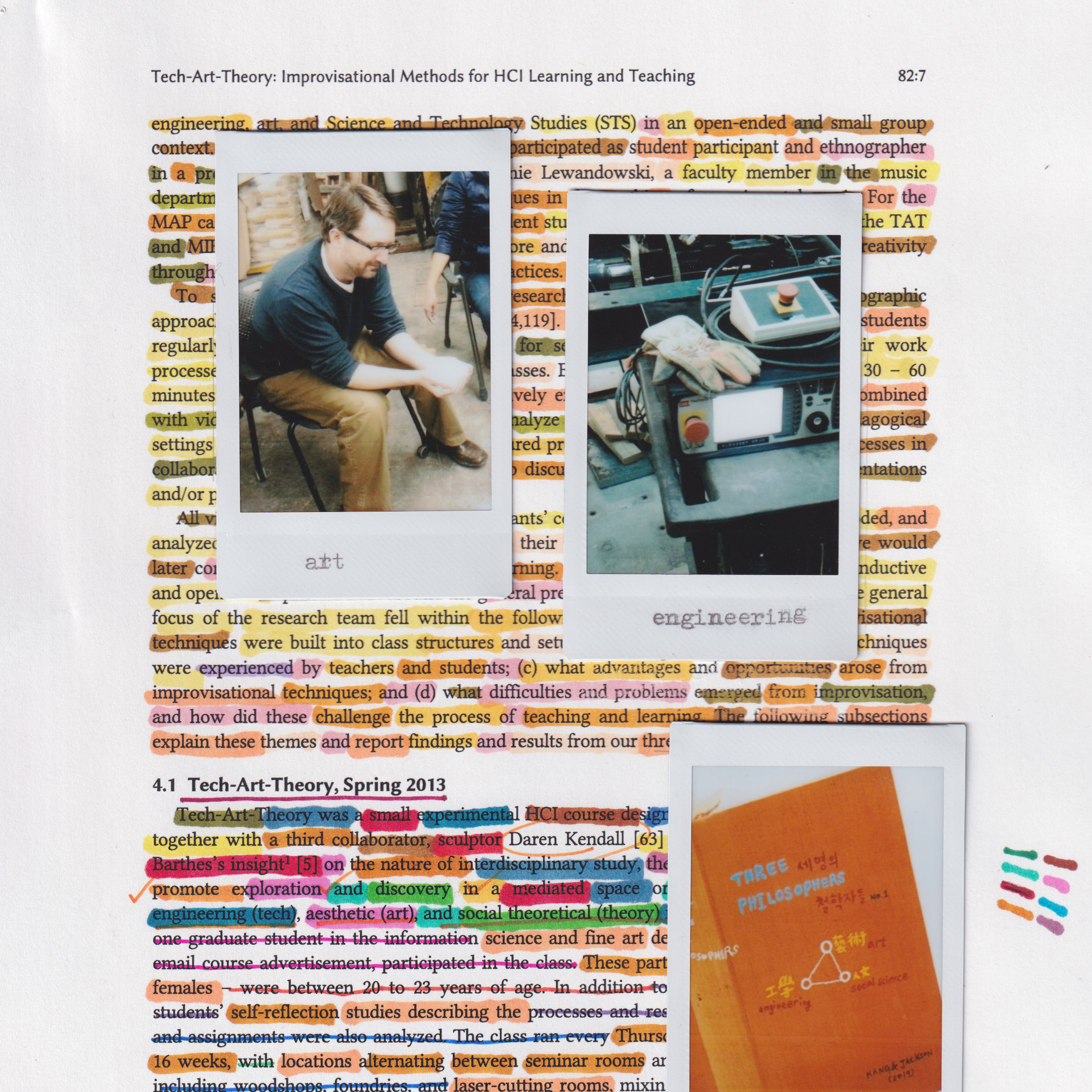








Case 2: Music Improvisational Ensemble (2016)
After this first experience, our research team decided to gain more specific skills and techniques in improvisational teaching from fields in which such methodologies play a more central role. To do so, we conducted a participatory study of a 'Music Improvisation Ensemble' class offered in our university's music department during the fall semester of 2016. This intermediate level course was dedicated to exploring 'the elements of music from an improviser's perspective.' The class was taught by Annie Lewandowski, a multi-instrumental musician exploring improvisational beauty in experimental and indie rock music.
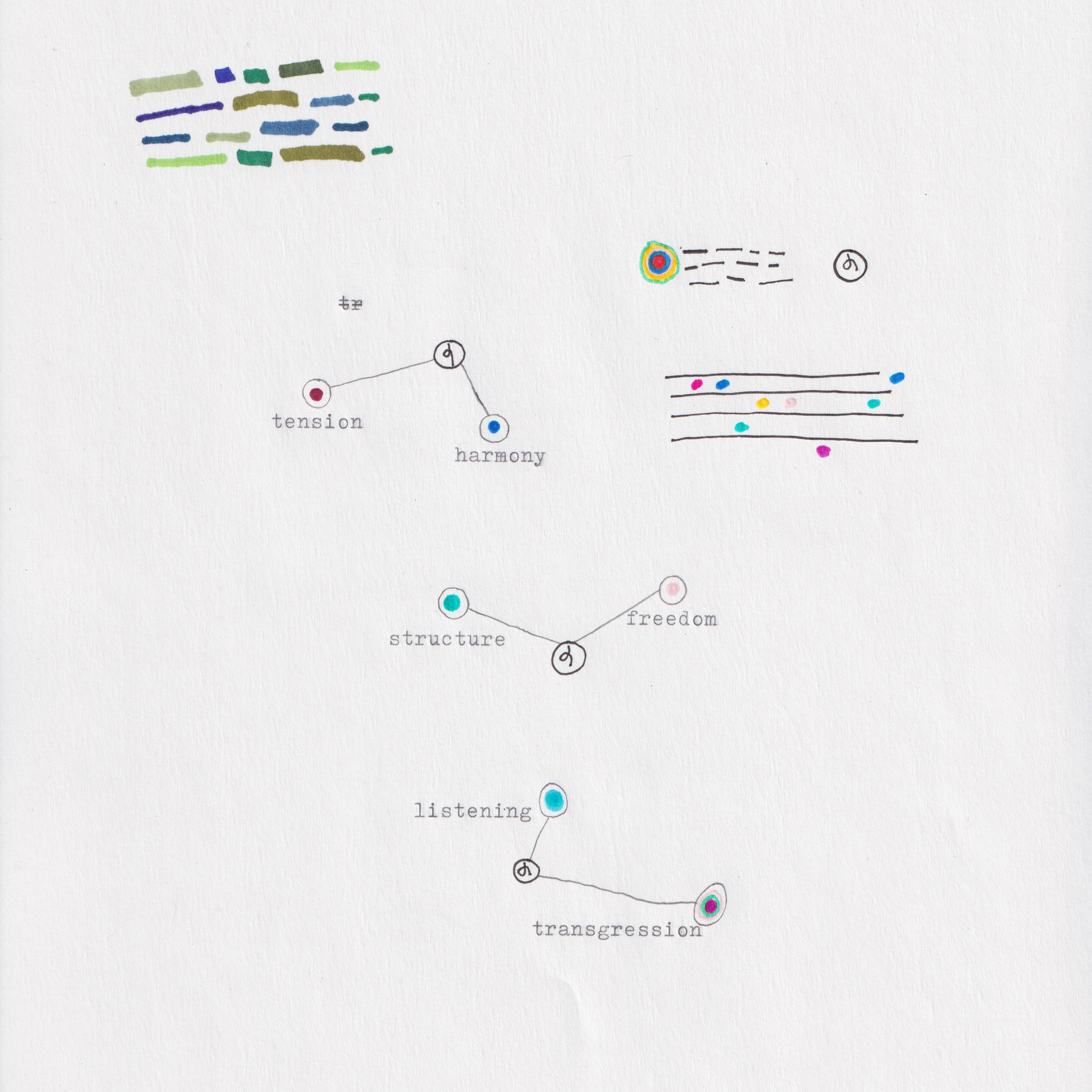
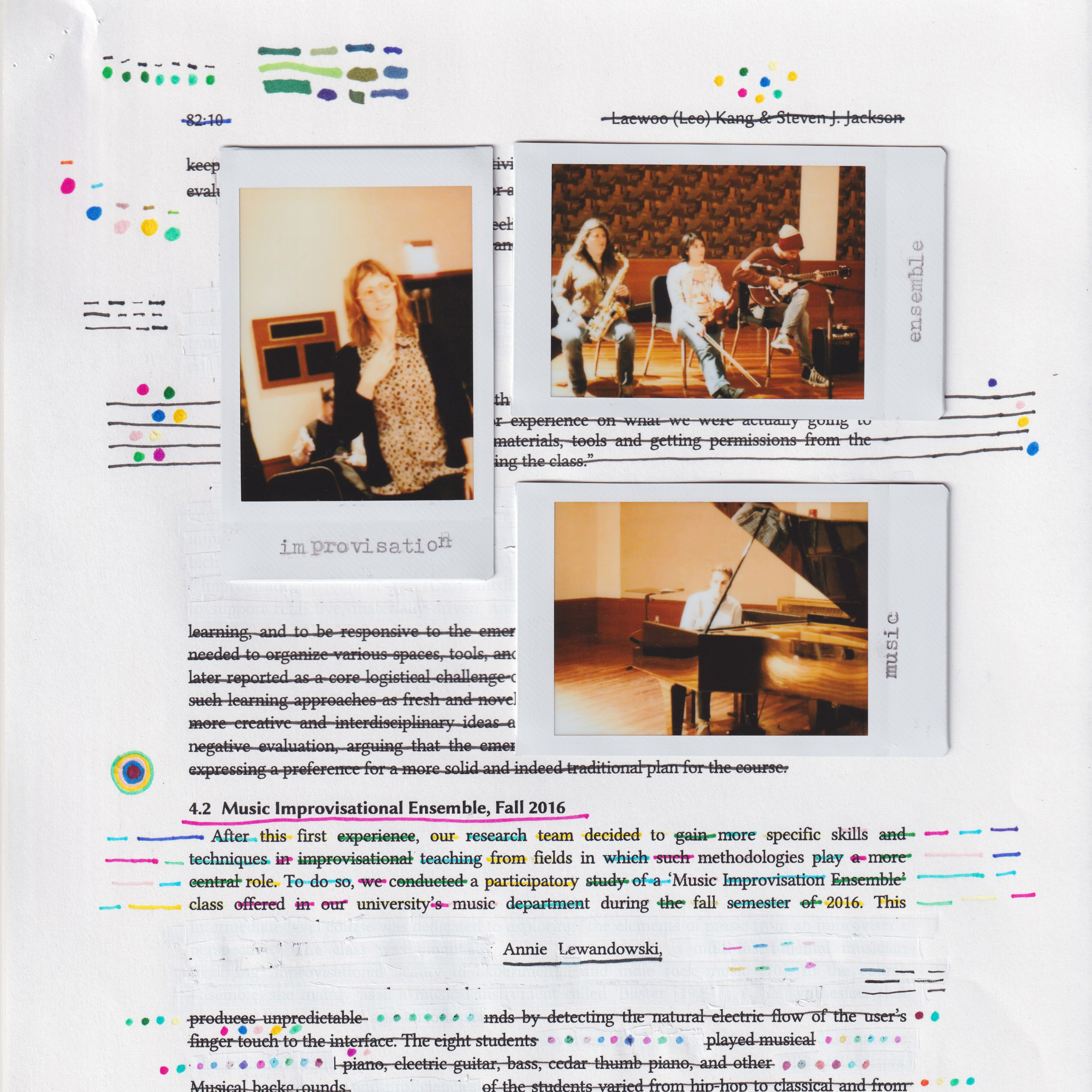





Case 3: Media Art Practice for HCI (2015-2019)
Our third empirical study involved six cases of an ongoing independent study class titled 'Media Art Practice for HCI' running from 2016 to 2018. This class offeres a hybrid learning space where students can build HCI related projects through their own art practices (e.g. drawing, dance, music, photography or other self-defined practices).
Four undergraduate and two master's level information science students participated, recruited through course advertisement within the department.
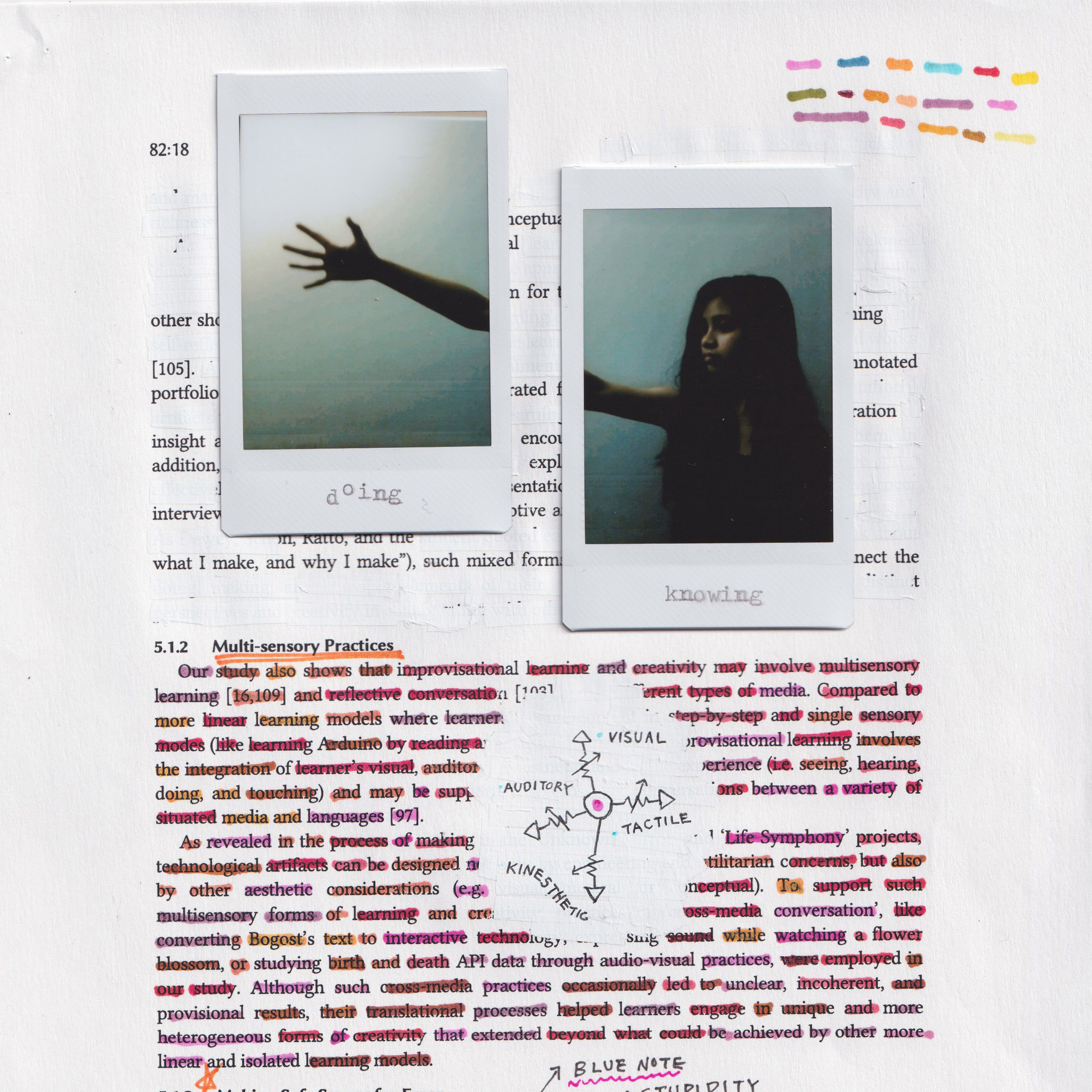
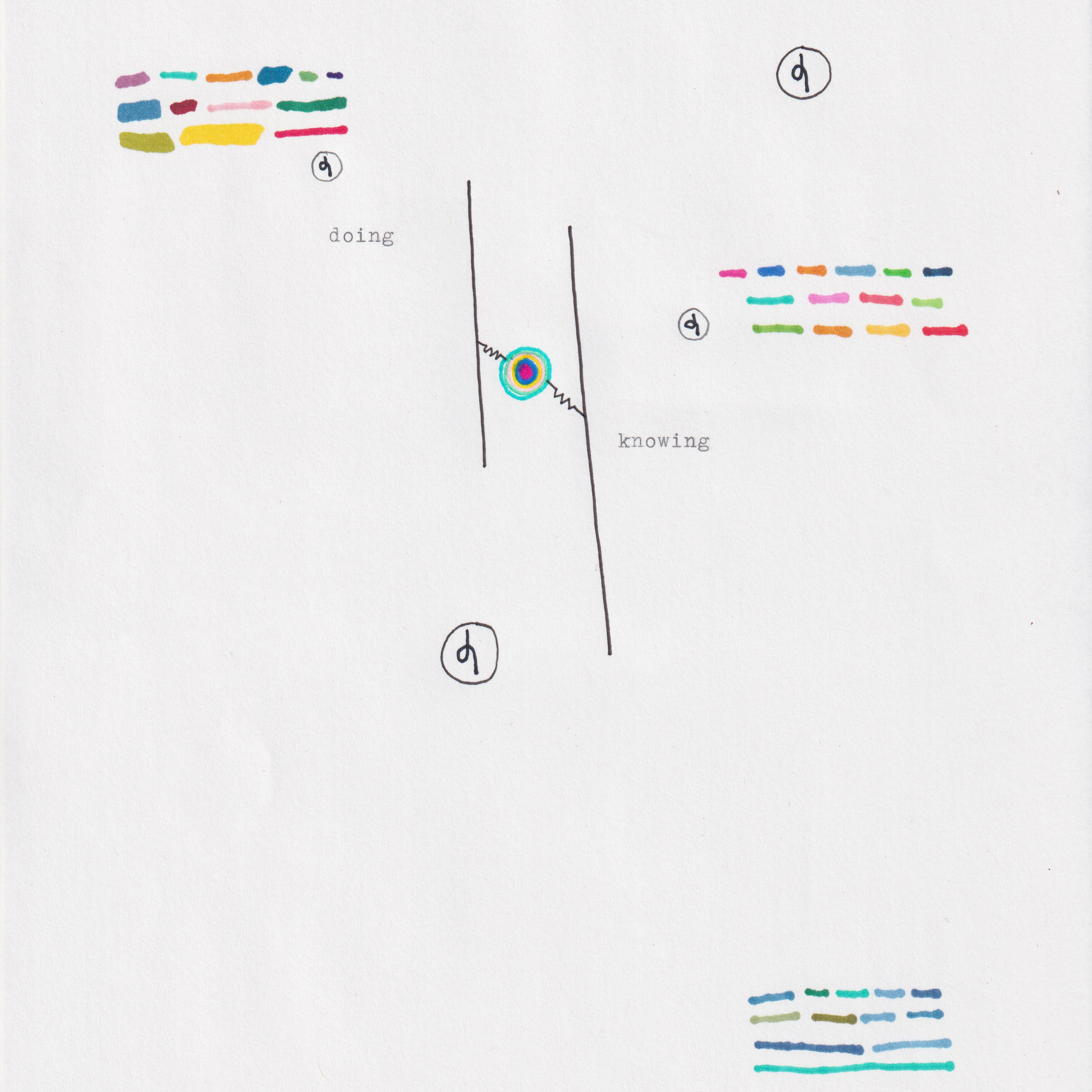




Cornelis's music drawings (B.S 2015)

Apivessa's music drawings (B.S 2017)

Wu's Recursive Translation (M.P.S 2015)

Prakash's API-based music interface (M.P.S 2017)

Sullivan's thermal camera installation (M.P.S 2017)

Apivessa's interactive photo essay (B.S 2017)

Chan's music and music video (B.S 2017)

Vinzons's Choreography and dance (B.S 18)
Learnings:
From this study, we reports specific pedagogical conditions (socio-material evaluations, multi-sensory practices, and making safe spaces for error) that can support improvisational learning. Finally, we speak to three problems of HCI pedagogy - relevance, assessment, and inclusion - that improvisational methods can help to address.
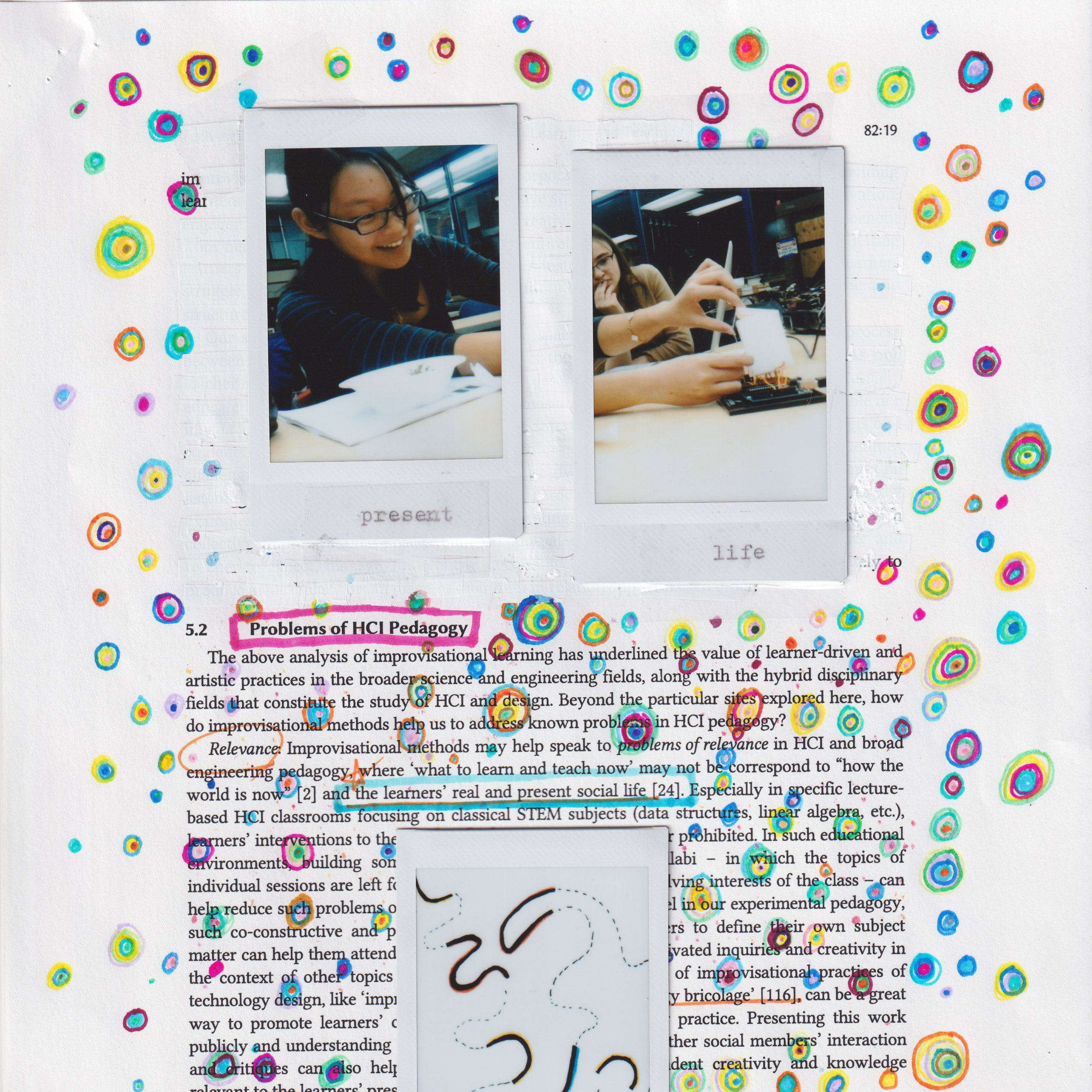
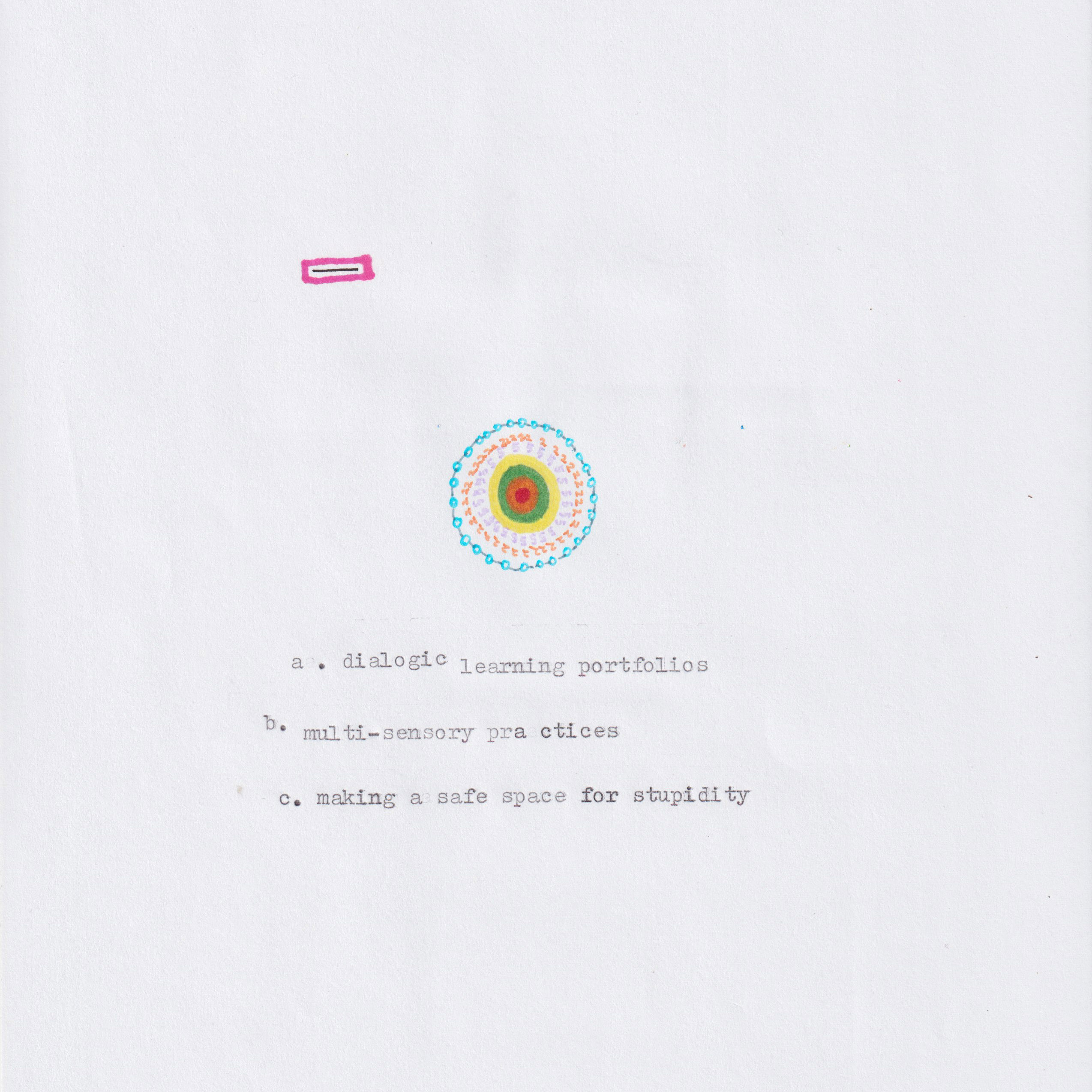


Acknowledgments:
The authors wish to thank and acknowledge the avid participation of our teaching collaborators, Daren Kendall and Annie Lewandowski, and all students who kindly tried our risky classes. These brave people include Vera Khovanskaya, Jung-ho Sohn, Emily Sun, Da Ying, Jeff Ayars, Sofie Cornelis, Yanpu Wu, Marty J. Sullivan, Rohit Prakash, Mind Apivessa, Chelsea Chan, and Alexis Vinzons.